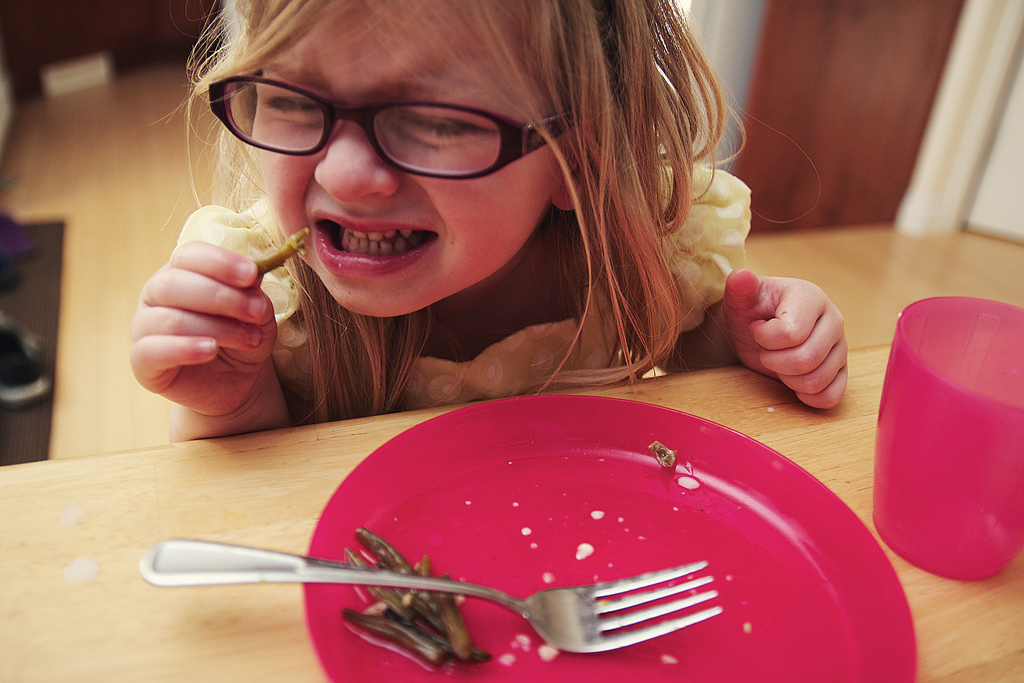A few nights ago, I was watching the show Parenthood with my parents. If you have a child on the autism spectrum, you’ve probably heard of it; it features an autistic boy named Max Braverman (artfully portrayed by actor Max Burkholder) as well as an autistic adult (Ray Romano, demonstrating that he’s a surprisingly good actor). In one scene, Max’s mother says to Max’s father something like, “Honey, he won’t eat that. The peas are touching the chicken.” My parents both looked at me and cracked up laughing.
This is hilarious to them because in my 30s, I still hate eating food that’s touching other food. The salad can’t be touching the asparagus, which can’t be touching the spaghetti. Those are the rules. Don’t get me started on casseroles, which are just straight-up anarchy.
I have a lot of food rules. It’s a common thing for autistic people. It’s as annoying for me as it is for the people around me, trust me. I wish I could just walk into any restaurant and order whatever looks good, without making a lot of weird requests, but I can’t. I’m not rude when I’m a guest in someone’s home, and I’ve never sent food back in a restaurant for breaking my rules, but eating things that don’t conform is very difficult.
My mother says things like, “How can you not like hot dogs? Everyone likes hot dogs!” No, mom, everyone doesn’t. If I can’t tell what part or type of animal meat is from, I am not putting it in my mouth. “Everyone” also apparently likes hummus, green olives, and Pepsi. No, gross to all three. Canned salmon. Red peppers. I’m about to gag just thinking about those things. I could list all the stuff I won’t eat, but this is a blog, not a novel.
It’s annoying. It’s inconvenient. I’m pretty sure the chef at my favorite restaurant groans when she sees me walk in. But show some mercy to your picky autistic child; we’re not doing it to annoy you for fun, I promise.
Kids need to learn manners. If yours is lucky enough to have friends, he or she needs to understand that it is unacceptable to tell Mr. and Mrs. Patterson that their food is gross. You eat it and shut up about it, unless it’s an actual allergy. It’s also good to practice eating the hated food at home… Occasionally. In general, I’m a big advocate of home being a place that stands for comfort, where you don’t have to fake normal, and if that means letting Lily eat a peanut butter sandwich while the rest of the family has beef stew, it’s not the end of the world. As long as your child’s doctor says he or she is developing normally and isn’t malnourished, it’s probably fine to give in to some dietary quirks at home.
For a long time, I saw food as the enemy. I looked forward to meals about as much as I did dental appointments. It doesn’t need to be like that! Helping your child discover food that’s palatable and nutritious is actually possible. I’m still a bit of a nightmare, but mealtime doesn’t make me cry any more. Mostly.
Just don’t try to tell your kid that kale is actually delicious. That is a lie. You know it, your kid will know it, and that sort of thing has the potential to foster serious trust issues. I think the people at the smoothie shop near my house might be evil robots on a mission to poison the human race. I’ve seen Battlestar Galactica. I know how this works.
So the upshot is: Encourage flexibility in eating. But don’t be an evil robot about it.


